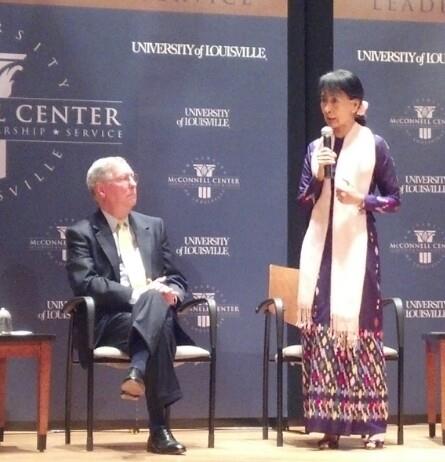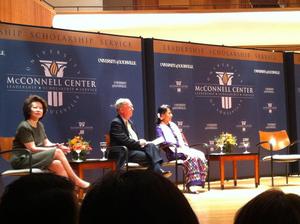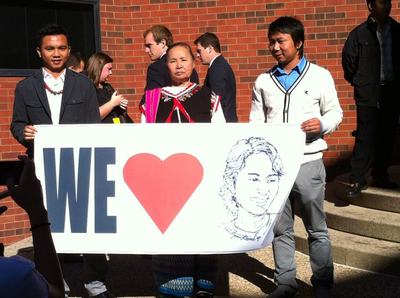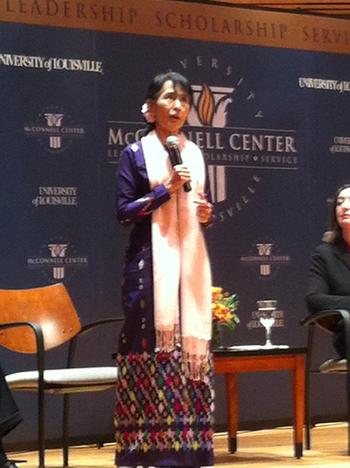
One of the wonderful features of Aung San Suu Kyi's visit to the University of Louisville on September 24, and there were many, was the significant length of time that was given over to questions and answers. It was particularly exciting to see the exchange between Suu Kyi and the refugees from Burma that now call Louisville home. As a China watcher, however, I was most fascinated by her response to an excellent question posed by University of Louisville Professor of Political Science, Charles Zeigler:
"As an authoritarian regime, Burma was very close to an authoritarian China. As it democratizes, assuming that process continues, where do you see Burma's international position going. Will it retain close ties with China? Will it draw closer to the United States? How do you see that evolving?"
Truly inspiring, Suu Kyi's answer is worth relaying in full:

"I should mention that when Burma became independent in 1948, we became independent as a parliamentary democracy, and we believed in the values of democracy, and although of course you can say we were not a perfect democracy, considering the fact that we had to cope with a lot of internal armed insurgences in those first years, we did well. We certainly felt free. I always remember the days of my childhood as days when people were not afraid to speak out against the government and of articles lampooning the Prime Minister appearing quite regularly in the past and nobody was arrested for that. So we were a practicing democracy, flawed, but still strong and going in the right direction. In those days we were one of the first countries to recognize a communist government of China in the 1950s and we established good relations with China, friendly relations. We maintained a neutral position. We were good friends of India, of China, of countries in our region and also of the western nations. We established good friendly relations with our ex-colonial government, the English. We became very friendly with them. We had good relations with the United States. And now that we are going back towards democracy I would like to think that Burma rather than being a bone of contention between China and the United States would be able to bring those two great countries together. It is in the interest of the world that the United States and China should be friends rather than adversaries. And this is something I would like to see. I would like to see a world where, the greater the powers are the more they realize that they have a responsibility to keep on good terms for the sake of the rest of the world. And I certainly would not like Burma to be in a position where we have to choose between one big power or the other. Or that we can not only be friends with both, but we may be an instrument of bringing them closer together. This may seem very ambitious but I think you have to be ambitious if you want to get somewhere."
What is perhaps most striking is how quickly the situation in Burma has changed. Only a couple of years ago, I argued that as the more reasonable regime, China could help the United States deal with an extremely authoritarian Burma. Now, the situation may be reversed. Many would call Suu Kyi's sentiments impossibly optimistic, but then one easily could have said the same thing about her chances of accepting the Congressional Gold Medal in person and addressing the University of Louisville as the leader of the opposition in Burma's parliament.



